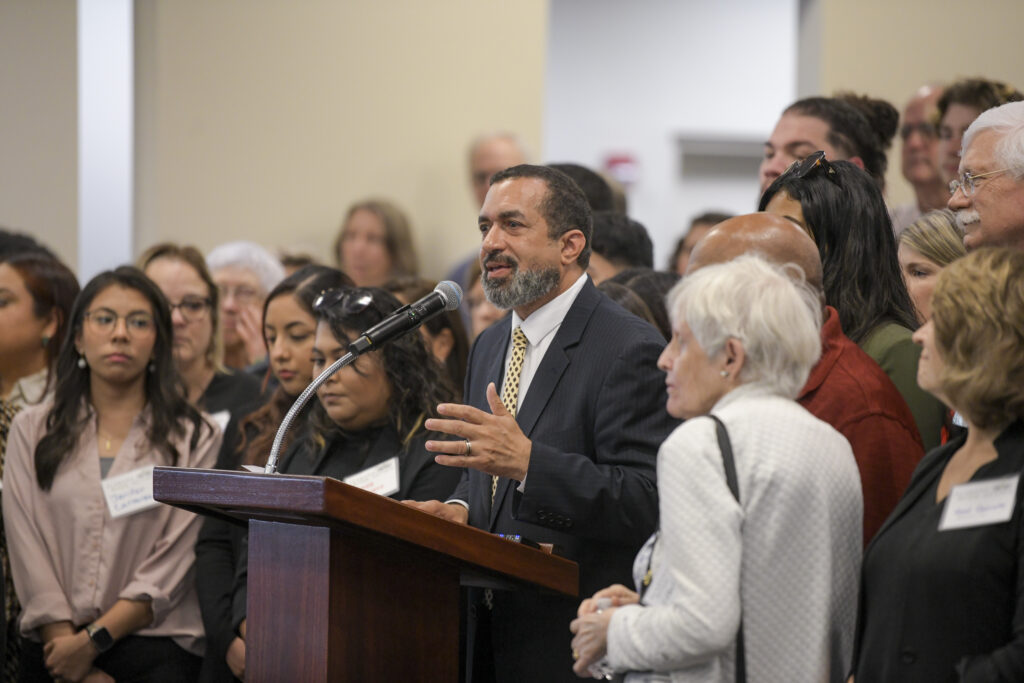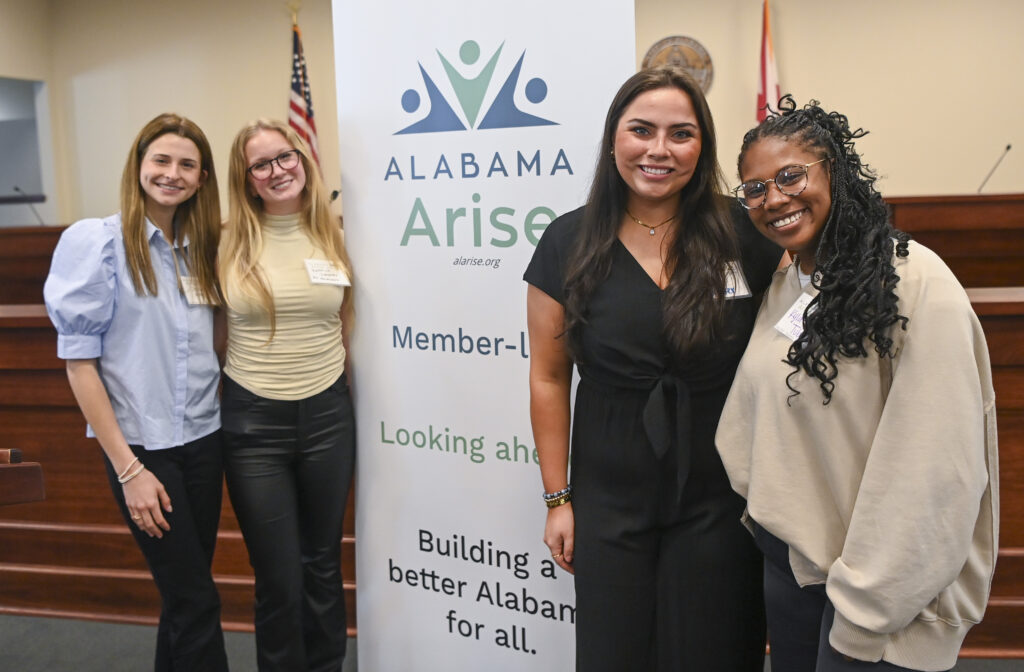Alabama Arise’s supporters and members are used to seeing a handful of friendly faces from the staff regularly. They may see organizers speaking at listening sessions or policy analysts giving TV interviews.
But many other staff members are also integral to realizing Arise’s mission. One is someone whose name you may recognize, but not her face: McKenzie Burton, an Arise development associate since October 2021.
 McKenzie’s journey to Arise started after graduating from the University of Georgia and serving as a youth minister and outreach coordinator for an Episcopal Church in New York.
McKenzie’s journey to Arise started after graduating from the University of Georgia and serving as a youth minister and outreach coordinator for an Episcopal Church in New York.
“I loved the work, and doing direct service work made me realize that what I really wanted was to help solve the root of the problems I was seeing,” she said.
After stints working for political campaigns, McKenzie found herself drawn to policy work.
“Electing the right people is important, but we must hold our officials accountable to doing the right thing once they are in office,” she said. “I feel lucky to have found a home in this journey at Alabama Arise. Arise is doing some of the toughest policy work in one of the toughest states, making our quest all the more crucial for everyday people.”
‘I learn every day from our members’
As a development associate, McKenzie works to recruit and nurture Arise members. She leads fundraising campaigns, membership drives and more. After working directly with Arise members for more than three years, she’s learned quite a bit from them.
“This work is hard, and I learn every day from our members what it looks like to stay focused and persistent in a way that is sustainable for yourself and the organization long-term. I also admire the dedication to collective organizing,” she said.
McKenzie said she loves engaging with members, and encourages them to reach out directly to her.
“Getting to know our members and helping to connect them to the pieces of the work they care most about is my favorite part of my job,” she said. “Reach out to grab a cup of coffee with me!”
‘A girl can dream’
Arise’s work is difficult, but McKenzie has high hopes for the future.
“I would love to see us begin to really stretch our wings and reach people in the state that we haven’t been able to reach before and build a truly diverse and reflective membership base,” she said. “My goal in this work is always to work myself out of a job! Maybe in 30 years, we will have built a truly responsive, just state with policies that set us all up for success. A girl can dream.”
McKenzie has accomplished a lot in her time as development associate. But one of her proudest moments came outside that role, when she participated in the creation of Alabama Arise Workers United.
“I was really proud to have helped organize our staff union, and even prouder to be working for an organization that has voluntarily recognized our union and been supportive of a democratic workplace,” she said.
McKenzie said she balances the trying work of advocacy with intentional self-care.
“I try to not take work home. Leave emotional space for true decompression and connection with my friends and family, whether that’s over a movie, at a restaurant, or visiting out-of-town friends in their cities,” she said. “Nothing makes me feel more connected to myself and the world than quality time with my people.”
For those curious about how to support McKenzie and Arise’s work, she said it’s simple: Keep us growing.
“Continue to support the work, and bring your friends and family along with you,” she said. “I am only one person, and our staff is only 20 people. The more we grow our individual donations, the more we can focus on the work our members care most about, and the stronger our coalition’s voice is at the State House.”





